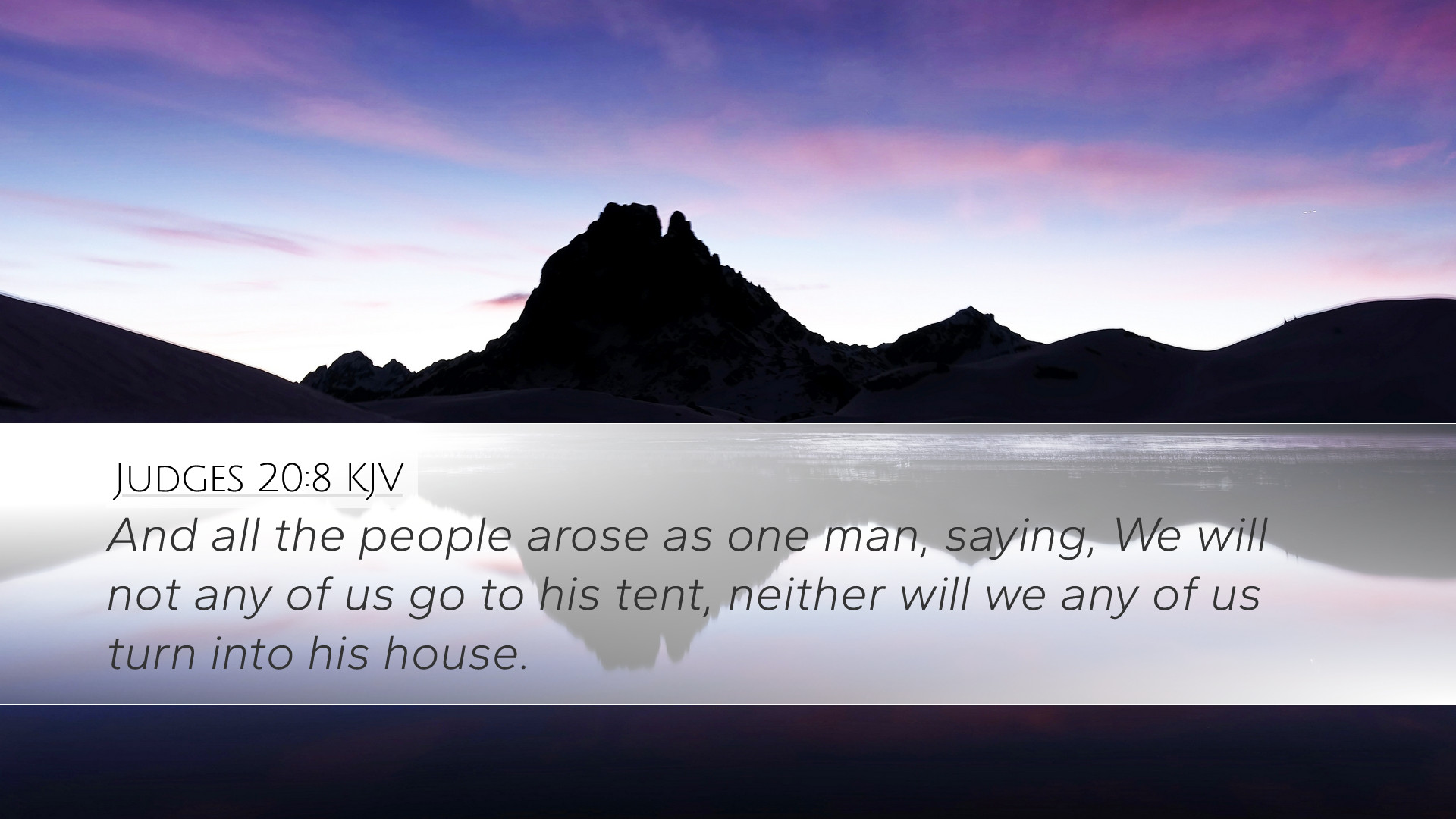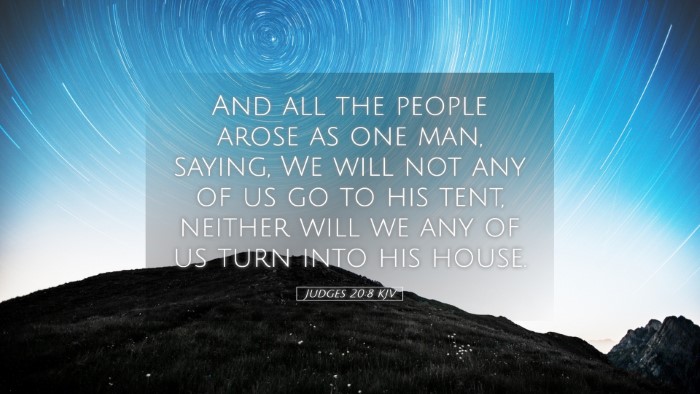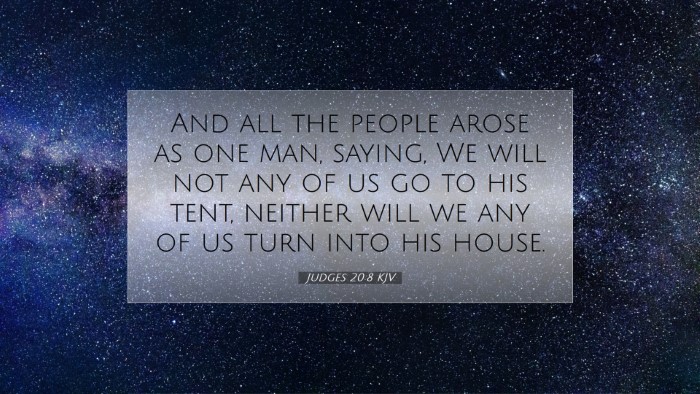Commentary on Judges 20:8
Verse: Judges 20:8 - "And all the people arose as one man, saying, We will not any of us go to his tent, neither will we any of us turn into his house."
Introduction
The events captured in Judges 20 are steeped in profound implications about unity, justice, and communal responsibility. This verse acts as a pivotal moment in the narrative, emphasizing the collective outrage of the Israelite tribes against the atrocity that occurred in Gibeah. Here, we explore insights from renowned commentators such as Matthew Henry, Albert Barnes, and Adam Clarke to grasp the depth of this scripture.
Historical Context
To fully comprehend the significance of Judges 20:8, one must acknowledge the historical backdrop. The tribe of Benjamin faced collective condemnation following the heinous crime committed against a Levite's concubine. This created a crisis that required a unified response from the other tribes of Israel. The verse reflects a moment of solidarity where individuals, despite their tribal affiliations, prioritize communal justice over personal comfort.
Insights from Commentaries
Matthew Henry
Henry notes that this verse is a testament to the communal spirit of the Israelites when facing injustice. He highlights that “all the people arose as one man,” signifying not only unity but a collective moral obligation to uphold righteousness. In his view, the decision to forgo personal refuge indicates a shared commitment to addressing wrongdoing. This selflessness resonates deeply, showcasing their resolve not to rest until justice is served.
Albert Barnes
Barnes elaborates on the implications of this verse by underlining the seriousness of the people's response. He remarks that the phrase "neither will we any of us turn into his house" illustrates a rejection of individualism in favor of communal action. The people understood that the gravity of the situation transcended personal comfort. The commitment to act in solidarity is pivotal here; the Israelites recognized that their collective identity supersedes individual needs.
Adam Clarke
Clarke's commentary serves to illuminate the fervor and desperation of the moment. He suggests that the Israelites' proclamation reflects their horror at the crimes committed and their determination to pursue justice at any cost. Clarke further emphasizes the symbolic value of “arising as one man,” indicating a significant spiritual awakening within the nation. Clarke posits that this moment should serve as a reminder for contemporary believers about the need for unity in confronting injustice.
Theological Implications
This scripture holds valuable theological insights regarding human responsibility and divine justice. The unifying act of the Israelites illustrates the belief that community accountability is integral to God's ethical structure. It raises important questions: What does it mean to stand as one in the face of wrongdoing? How do contemporary believers respond to issues of injustice within their communities?
Unity in Diversity
The passage illustrates that despite differences among the tribes, there is a commonality that binds them—namely, the pursuit of justice. Today’s congregations similarly face the challenge of maintaining unity amid diversity. The verse serves as a poignant reminder that collective action is a divine mandate in addressing injustice.
Divine Justice
The urgency seen in the Israelites' reaction also reflects a theological understanding of divine justice. They recognized that neglecting such a grievous matter would offend God. This notion should inspire followers to seek God's guidance and help in confronting modern-day injustices, ensuring that they remain vigilant in their moral duties.
Practical Applications for Today's Believers
Pastors, students, and theologians can draw several practical applications from Judges 20:8:
- Advocacy for Justice: Believers are called to be advocates for justice in their communities, emulating the unity demonstrated by the Israelites.
- Community Engagement: This verse is a clarion call to engagement within communities, challenging individuals to forsake self-interest and contribute to the common good.
- Collective Responsibility: Understanding that individual choices contribute to communal outcomes encourages responsibility beyond personal boundaries.
- Reflection on Personal Priorities: The text invites individuals to reflect on their priorities and consider how comfort can take a backseat to doing what is right.
Conclusion
Judges 20:8 encapsulates a critical moment of crisis that demands reflection on the principles of justice and community. The insights from Henry, Barnes, and Clarke encourage contemporary believers to embrace their communal responsibility, pursue justice zealously, and exemplify unity in diversity. As we reflect upon this passage, may we be inspired to act decisively in the face of injustice, embodying the spirit of the collective ‘one man’ in our pursuit of righteousness.


